Hello. I just found your blog post of last year concerning E.
Could you tell me why you posted the information about her?
I was born in Tuscaloosa but now live in S. Last summer, I met E., who also was a newcomer to the church. The assistant rector introduced us and later told me that E. gives music lessons to needy children and that she had just formed an orchestra made up of her young students. My husband and I enjoy music, he's a guitarist, and we found her program interesting. We questioned her, gave her the name of a guitar instructor and almost immediately she asked us to be on the board of a new not-for-profit she was in the process of establishing. My husband is a CPA and she seemed very eager to get his help with her new charity. E. told us she had come from Biloxi but left after Katrina, adding that she had been instrumental in beginning some sort of tourism event in Biloxi. E. also mentioned she had worked at Colonial Williamsburg and The White House, though she never elaborated on her work at either place.
A few members approached us and asked why we were getting involved with E.
They told us she had appeared at the church one day, touting her education and asking church leaders for a place to teach her students and hold concerts. We aren't the type to be discouraged from associations so we continued to listen to her plans and we attended the first concert of her students. It was very heartwarming to see so many young people interested in music and we planned to support her, though we did refuse her invitation to be on the board.
I Googled E.'s name tonight because our friend, the young music teacher, informed my husband that he hasn't been paid in two months. I immediately remembered the warnings we received about E. and began to Google her name. Although she told our confirmation class last Sunday that she was raised in the Episcopal church, she seems to have been affiliated with many churches and many denominations. She also lists several universities for her many degrees.
I was surprised to read she has two children and a grandchild - she has never mentioned them.
Please let me know how you know E. and what you know about her credentials.
Some people in the church have mentioned that they do not believe she holds a doctorate, their disbelief fueled by her rather mysterious demeanor.
My husband and I feel responsible for our young friend's dilemma. He likes teaching these S. children but needs to get paid and he wants to know if he should put faith in her
J.
S. , AL
9 March 2009
From THE HOUSTON CHRONICLE~
NATION'S CASH IS CONSCRIPTED BY ADOLF HITLERby Associated Press
Berlin, Feb. 22.- Reichsfuehrer Adolf Hitler has conscripted the nation's cash to buy raw materials and consolidate debts.
In one of the shortest laws passed by the Nazi government, the hunt for liquid assets was begun and will spare none upon whom the reichminister of finance wishes to call for money.
Lutz Schwerin Von Krosigk, the finance chief, was given wide powers.
Von Krosigk may go to banks and demand loans.
He may go to private firms and individuals and insist upon their parting with such cash reserves as are not absolutely essential to their well-being.http://en.wikipedia.org/wiki/Ernst_R%C3%B6hm.
In 1930 Hitler assumed command of the SA as its new Oberster SA-Führer. He sent a personal request to Röhm, asking that he return to serve as the SA's chief of staff. Röhm accepted this offer in 1931. Röhm brought radical new ideas to the SA and appointed several of his close friends to its senior leadership.
The SA now numbered over a million. Its traditional function of party leader escort had been given to the SS, but it continued its street battles with "Reds" and attacks on Jews. The SA also attacked or intimidated anyone deemed hostile to the Nazi programme: editors, professors, politicians, uncooperative local officials or businessmen.
Under Röhm, the SA also often took the side of workers in strikes and other labour disputes, attacking strikebreakers and supporting picket lines.
SA intimidation contributed to the rise of the Nazis, breaking down the electoral activity of the left-wing parties. But the SA's reputation for street violence, heavy drinking, and quasi-socialist radicalism was a hindrance.
Another hindrance was the more or less open homosexuality of Röhm and other SA leaders such as his deputy Edmund Heines. [1] In 1931, the Munich Post, a Socialist newspaper, obtained and published Röhm's letters to a friend in which Röhm discussed his sexual affairs with men. This resulted in a national scandal. The Nazis claimed that the letters were forged.[citation needed] Many writers have suggested Röhm and Heines allowed or encouraged SA promotions on the basis of sexual liaisons with themselves and other SA leaders.[citation needed] For example, SA Gruppenführer Karl Ernst had been a bouncer at a homosexual nightclub.[citation needed] This was in spite of the official Nazi policy which condemned homosexuality.
By this time, Röhm and Hitler were so close that they addressed each other as du (the German familiar form of "you"). Besides Röhm, Göring and Goebbels were the only Nazis who used du with Hitler, and only Röhm addressed Hitler as "Adolf," rather than "mein Führer."[citation needed]
As Hitler secured national power in 1933, SA men became auxiliary police, and it was the SA that marched into local government offices to force officials to hand over authority to Nazis.
[edit] Second revolution
Röhm and the SA reguarded themselves as the vanguard of the "Nazi revolution". After Hitler's takeover, they expected radical changes in Germany, with power and rewards for them.
But Hitler's use of the SA as storm troopers was a political weapon he no longer needed.
Röhm had been one of the most prominent members of the Party's "socialist" faction. This group took the words "Sozialistische" and "Arbeiter" ("worker") in the Party's name literally. They largely rejected capitalism (which they associated with Jews), and pushed for nationalisation of major industrial firms, expanded worker control, confiscation and redistribution of the estates of the old aristocracy, and social equality. Röhm spoke of a "second revolution" against "reactionaries" (the Nazi label for conservatives), as the Nazis had previously dealt with the Communists and Socialists.
All this was threatening to the business community, which had supported Hitler's rise to power. So Hitler swiftly reassured businessmen that there would be no "second revolution". Many "storm troopers" were of working-class origins and had expected a socialist programme. They were now disappointed in this, and also by the new regime's failure to provide the lavish patronage expected. Röhm even publicly criticized Hitler for his failure to carry through the Nazi revolution.
Furthermore, Röhm and his SA colleagues thought of their force (now over three million strong) as the future army of Germany, replacing the Reichswehr and its professional officers, whom they viewed as "old fogies" who lacked "revolutionary spirit". Röhm wanted to be made Minister of Defense. In February, 1934 he demanded that the Reichswehr (which under the Treaty of Versailles was limited to 100,000 men) be merged into the SA to form a true "people's army".
This was horrifying to the army, with its traditions going back to Frederick the Great. The army viewed the SA as a brawling mob of undisciplined street fighters, and had heard all the rumours of homosexuality and "corrupt morals" in the SA. The entire officer corps opposed Röhm's proposal, insisting honour and discipline would vanish if the SA gained control. And it appeared that the SA would settle for nothing less.
Hitler privately shared much of Röhm's animus toward the traditionalists in the army. But he had gained power with the army's support, and he wanted the army's support to succeed the ailing 86-year-old Hindenburg as President.
On April 11, Hitler met with German military leaders. Hitler informed them of Hindenburg's declining health and proposed that the Reichswehr support him as the next president. In exchange Hitler offered to reduce the SA, suppress Röhm's ambitions, and guarantee the Reichswehr would be Germany's only military force. Shirer asserts Hitler also promised to expand both the army and navy.
However, both the Reichswehr and business conservatives continued their anti-SA complaints to President von Hindenburg. In early June 1934, Blomberg, on Hindenburg's behalf, issued an ultimatum to Hitler: unless political tension in Germany ended, Hindenburg would likely declare martial law. Hitler was shocked to hear this from Blomberg, who up to that point had displayed a near lackey-like attitude toward him. However, when Hitler went to see the President himself, Hindenburg confirmed the ultimatum and, knowing such a step could forever deprive him of power, Hitler decided to carry out his pact with the Reichswehr to suppress the SA. This meant a showdown with Röhm. In Hitler's view, the army and the SA constituted the only remaining power centres in Germany that were independent - not reduced to submission to the Nazi state.
The army was willing, even eager to submit. Blomberg had the swastika added to the army's insignia in February, and ended the army's practice of preference for "old army" descent in new officers, replacing it with a requirement of "consonance with the new government."

Hitler & Röhm review SA troops
Meanwhile, Hitler had already begun preparing for the struggle. In January 1934, he ordered the secret police to gather incriminating evidence on Röhm, and in February he told British diplomat Anthony Eden that he planned to reduce the SA by two thirds. Also in February, he announced that the SA would be left only a few minor military functions.
Röhm responded with further complaints about Hitler, and began expanding the armed elements of the SA. To many it appeared as though the SA was planning or threatening a rebellion. In March, Röhm offered a compromise whereby a few thousand SA leaders would be taken into the army, but the army rejected it. [2]
Although determined to curb the power of the SA, Hitler put off doing away with his long-time comrade to the very end. Himmler, Heydrich, and Göring used Röhm's published anti-Hitler rhetoric to support a claim that the SA was plotting to overthrow Hitler. By late June, this story had been officially recognised and Himmler was giving protective orders to the SS, while Sepp Dietrich went around showing army officers a purported SA execution list. Reports of the SA threat were passed to Hitler; it is possible that Himmler and his colleagues actually deceived Hitler into thinking the plot was real.
Meanwhile, Röhm and several of his cronies went away on holiday at a resort in Bad Wiessee. On June 28, Hitler phoned Röhm and asked him to gather all the SA leaders at Bad Wiessee on June 30 for a conference. Röhm agreed, apparently unsuspicious.
The day and night of June 30 marked the Night of the Long Knives, when the entire leadership of the SA was purged, along with many other political adversaries of the Nazis. At dawn that morning, Hitler flew to Munich and then drove to Bad Wiessee, where he personally arrested Röhm and the other SA leaders. All were imprisoned at Stadelheim Prison in Munich.
Hitler was uneasy authorising Röhm's execution and gave Röhm an opportunity to commit suicide. On July 2, he was visited by SS-Brigadeführer Theodor Eicke (then Kommandant of Dachau) and SS-Hauptsturmführer Michael Lippert, who lay a pistol on the table, told Röhm he had ten minutes to use it, and left. Röhm refused, saying "If Adolf wants to shoot me, he can do it himself".[citation needed] When Eicke and Lippert returned, he stood in the middle of the cell with his shirt opened, theatrically baring his chest as they shot him. Röhm was buried in the Westfriedhof (Western Cemetery) in Munich.
The purge of the SA was legalised the next day with a one-paragraph decree: the Law Regarding Measures of State Self-Defence. At this time no public reference was made to the alleged SA rebellion; instead there were generalised references to misconduct, perversion, and some sort of plot. John Toland noted that Hitler had long been privately aware that Röhm and his SA associates were homosexuals, but said nothing, though he of course disapproved. Nazi propaganda now made use of their sexual orientation as justification of the executions.
A few days later, the claim of an incipient SA rebellion was publicised and became the official reason for the entire wave of arrests and executions. Indeed the affair was labeled the "Röhm-putsch" by German historians, though after World War II it has usually been modified as the "alleged Röhm-putsch". In a speech on July 13, Hitler alluded to Röhm's homosexuality and explained the purge as chiefly defence against treason. [3]
Hermann Goering's legacy cannot be separated from the legacy of Adolf Hitler and Nazism, which includes the Holocaust and millions of other casualties. He was able to use his position to benefit himself. The confiscation of Jewish property gave Göring great opportunities to amass a personal fortune. Some properties he seized himself, or acquired for a nominal price. In other cases, he collected fat bribes for allowing others to grab Jewish property. He also took kickbacks from industrialists for favorable decisions as Four Year Plan director.
Göring was also noted for his patronage of music, especially opera. He entertained frequently and lavishly. Most infamously, he collected art, looting from numerous museums (some in Germany itself), stealing from Jewish collectors, or buying for a song in occupied countries.
When Göring was promoted to the unique rank of Reichsmarschall, he designed an elaborate personal flag for himself. The design included a German eagle, swastika, and crossed marshal's batons on one side, and on the other Großkreuz des Eisernen Kreuzes ("Grand Cross of the Iron Cross") between four Luftwaffe eagles. He had the flag carried by a personal standard-bearer at all public occasions.
| | | | |
Standard, on display at the Musée de la Guerre in the Invalides |














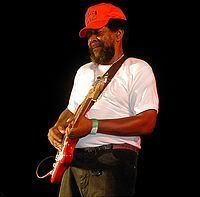
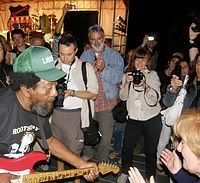
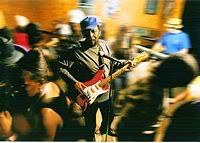
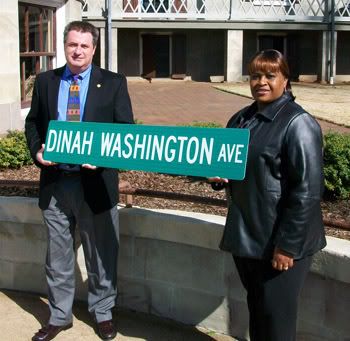
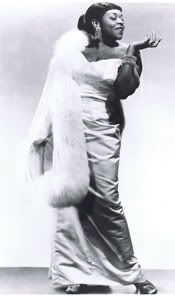











Please check out the Heeey Baby Days of Beach Music http://heybabydays.com
BLOG!!!!
http://heybabydays.blogspot.com/
Be good.
Best,
rr
The Wal Mart Parking Lot in Geneva
image courtesy of http://www.facebook.com/photo.php?pid=1423275&op=1&o=all&view=all&subj=56512787807&aid=-1&oid=56512787807&id=707609849#/group.php?gid=56512787807
from the June 6, 1975 B'ham News
Versatility keeps name of Billy Joe Royal
high on the rock charts
by Melanie Jones, News staff writer
From "Down In The Boondocks" all the way up to the to of the Grand Canyon singing Coca Cola commercials Billy Joe Royal will be the first to tell anybody that he's been around- a long time.
With all the nameless here-today-gone-tomorrow singers among the record industy, what keeps an entertainer in the winner's circle?
Billy Joe's career reflects the philosophy that it's all a matter of versatility.
A delicate instinct of knowing when to catch onto the train of today's music and when to let go of yesterday. It also helps to
have an uncomparable style.
This versatile entertainer will bring all the know-how he's picked up to Birmingham as he emcees an performs at the MISS ALABAMA PAGEANT in the Concert Hall of the Birmingham-Jefferson Civic Center.
Joe Billy will perform at 7:30 p. m. Thursday, Friday and Saturday during preliminary judging in swimsuit, evening gown and talent competitions. Fashioned after the Miss America Pageant, judging is open to the public.
BILLY JOE will feel right at home with the 50 Southern beauties who will compete for the coveted crown. The singer-guitarist was born in nearby Valdosta, Georgia. It's no wonder the roots of his rock 'n' roll style in the 1960s were entwined with those of country music.
The sounds of the '60s pivoted from the song-writing and producing abilities of Atlanta's Joe South. Among his peers were such performers as Tommy Roe and Billy Joe who helped bring South's composing talents to national attention by their hit records of his songs.
During a two-year engagement at a Savannah, Ga. nightclub, he became friends with South. Billy Joe recorded some of his compositions with South acting as producer. Soon "Down in the Boondocks" made the Top Ten charts throughout the country. Since then, Billy Joe has played clubs and concerts ranging from the Greek Theatre in Los Angeles to the London Palladium.
Looking back over his earlier days, Billy Joe recalled the era of Dick Clark's "Where The Action Is." Traveling across the U.S. with the Action troop, he remembered the days when an inconspicuous English singer by the name of Tom Jones passed unnoticed by the generation of devoted fans. Unnoticed, that is, until Billy Joe and a few of the other Action dancers taught Mr. Jones a wiggle or two.
Billy Joe was traveling and performing with Tommy Roe at a time when the undiscovered Beatles ranked No. 2 below the headliner Roe.
Preferring booking in many major cities in the U. S. and abroad to settling down to recording, after his first single hit "Down In The Boondocks," Billy Joe hit the road again, playing clubs in Vegas and Los Angeles. A year passed before hs second hit, "Hush," was issued by Columbia Records in 1967. From this, he placed "CHERRY HILL PARK" in the Top Ten throughout the country in 1969, "Every Night" in 1970 and "Tulsa" in 1971.
Part of the reason for his relatively low output of recordings is his heavy schedule of in-person and TV appearances. He plans this summer to make another album which will be released in the fall.
Reputed to be the first BLUE-EYED SOUL SINGER, Billy Joe feels at home in the Magic City after playing engagements at Joe Namath's Restaurant and the Apothecary and making many friends there and by participating in the WVOK "Shower of Stars."
But after next week, he'll have 50 more of the most beautiful friends a guy could have. Sharing the stage with Billy Joe and the 50 hopefuls will be former Miss Alabama's Ceil Jenkins Snow and Jane Rice Holloway. The current Miss Alabama, ventriloquist Pam Long, will make her singing debut.
Tickets for the nightly performances are available through the Public Affairs Department of The Birmingham New, sponsor of the 57th annual Miss Alabama Pageant.
The contestants will divide into two groups of 25.
Group No. 1 will compete in evening gown and swimsuit on Thursday night, and Group No. 2 will participate in talent competitions.
Friday night, Group No. 2 will compete in evening gown and swimsuit, while Group No. 1 competes in talent.
Points will be totaled at the end of Thursday and Friday competitions, and those with the highest points will be announced. The 10 girls with the most points will then compete for the crown on Saturday night.
PREVIOUS POINTS will be discarded on the final night as the top 10 compete in evening gown, swimsuit and talent. From these, five girls with the most points will be selected. Previous points will again be discarded, and judges will select a Miss Alabama on the basis of an over-all judgment.
With more seats available, the pageant will not be televised. Tickets are still available through the Public Affairs Department of The Birmingham News.
Sponsor of the 57th annual Miss Alabama Pageant is The News in cooperation with WAPI-TV and the Alabama Federation of Women's Clubs.
Do yourself a favor and go down to the book store and get you a copy of the March issue of HITTING THE NOTE http://www.hittinthenote.com/
& the February issue of MOJO http://cover.mojo4music.com/Item.aspx?pageNo=1795&year=2009
March is the 40th anniversary of the Allmans &
2009 is the 50th anniversary of Motown.
The Motown CD that comes with February's MOJO is KILLER!
Best,
rr
From:
http://www.garagehangover.com/?q=PreachersAL.
Preachers
The Preachers three 45s, on the Righteous Enterprises label, have zero to do with the famed duo (one of the many annoyances about researching information unverified on the web). Only resemblance is in the name. The Righteous Brothers did not have copyright on the word 'Righteous'. I'm sure in some print article / clipping there may have been a mention of the Righteous Brothers planning to start up their own label at the same time, but it has no connection to this label.
I haven't verified it but I think David Keller was behind Righteous Enterprises (I've only seen the 3 Preachers 45s on the label of the same name), before he started up another local label, Daisy (releases by the Omen and Their Luv, Outer Mongolian Herd both from 1968)
Sheri-Glen music was operated by a husband and wife team from Birmingham. I spoke with them 15 years ago. I'd have to do some extensive digging in my vast notes to get their names.